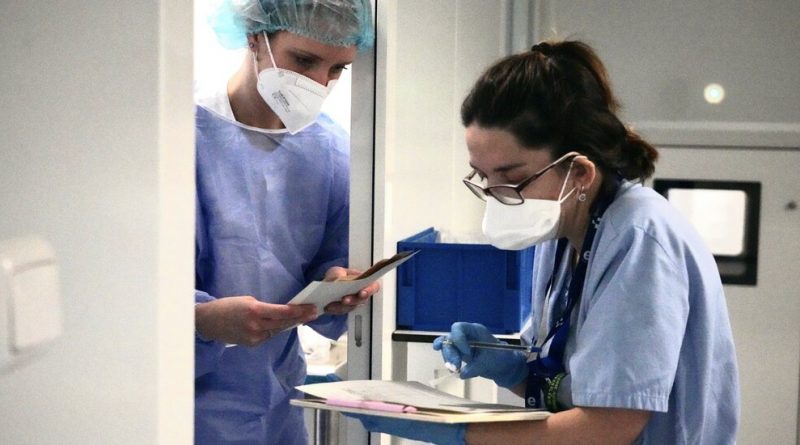CureVac says its vaccine passed a first analysis but it has yet to release efficacy data.
[ad_1]
The German company CureVac said Friday that its vaccine for Covid-19 had passed its first interim analysis but that is was not yet ready to share data on how well it protects against infection. The shot could be cheaper and more accessible to low-income countries that lack vaccines.
The company said that 59 volunteers had developed Covid-19 and that their Data Safety Monitoring Board found no safety concerns. But the board did not share any efficacy data, suggesting that it’s not yet clear just how much protection the vaccine provides.
“The trial will continue to collect sufficient data in order to conduct statistically significant efficacy analysis,” the company said in its statement.
The vaccine is based on mRNA technology, like the ones developed by Moderna and Pfizer-BioNTech. Those vaccines are in use in the United States and the European Union and have proved to be highly effective, boosting the prospects that CureVac’s might provide strong protection against the coronavirus as well.
CureVac may have some advantages over the other mRNA vaccines. It can be kept viable in a refrigerator for at least three months at 41 degrees Fahrenheit, and it can sit for 24 hours at room temperature before it is used.
In their initial formulations, the Moderna and Pfizer-BioNTech vaccines had to be kept in a deep freeze. Both companies have been tinkering with their recipes to make their vaccines more stable at warmer temperatures, which may broaden their use in poorer countries where freezing may pose a challenge.
CureVac may also turn out to be cheaper than its potential rivals. Public Citizen, a consumer advocacy organization, released a report Wednesday from researchers at Imperial College London, estimating how much it would cost to make enough RNA vaccines to provide herd immunity in low- and middle-income countries. It would cost $22.83 billion to make 8 billion doses of Pfizer-BioNTech, $9.43 billion for Moderna, and just $4.38 billion to make CureVac.
Last year the company got promising results using their vaccines on animals. By December they had launched their final clinical trial, recruiting 40,000 volunteers in 10 countries in Latin America and Europe.
The trial was designed so that an outside board of experts would periodically check the trial data as some volunteers developed Covid-19. They would look for any warning signs that the vaccine was not safe. They would also check to see how many of the sick volunteers received the CureVac vaccine and how many received a placebo. If the placebo group was much bigger than the vaccine group, that would indicate the vaccine protected against Covid-19.
It’s impossible to say exactly when CureVac will reach enough cases to present its final results. But on Wednesday, the company hinted the results should arrive before the end of June. “We are expecting the data readout from the pivotal Phase 2b/3 trial in the second quarter,” they said in an update.
